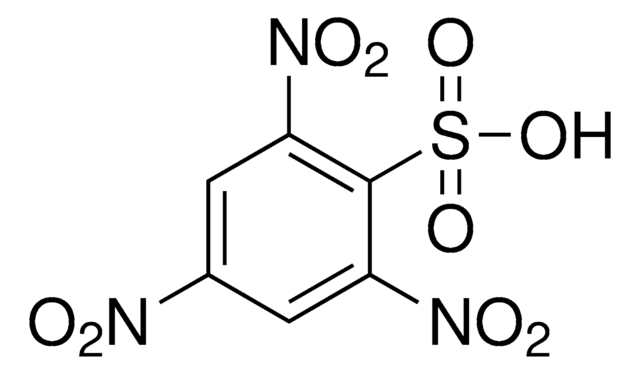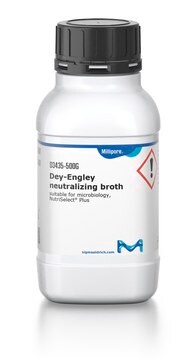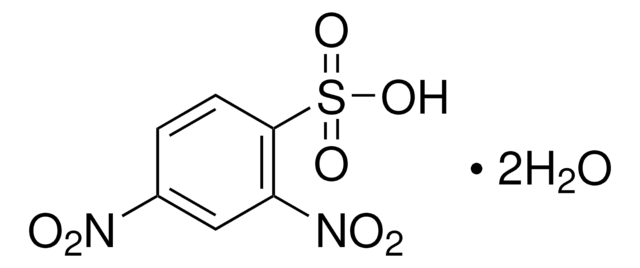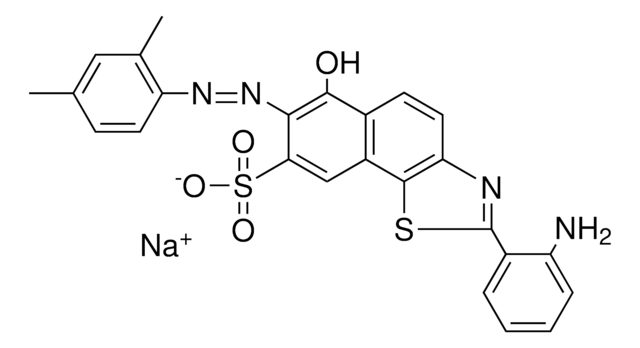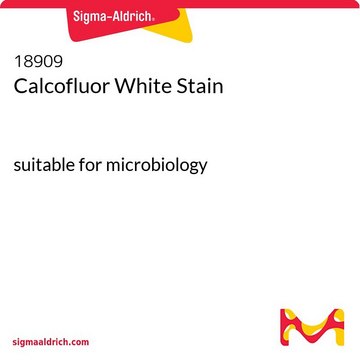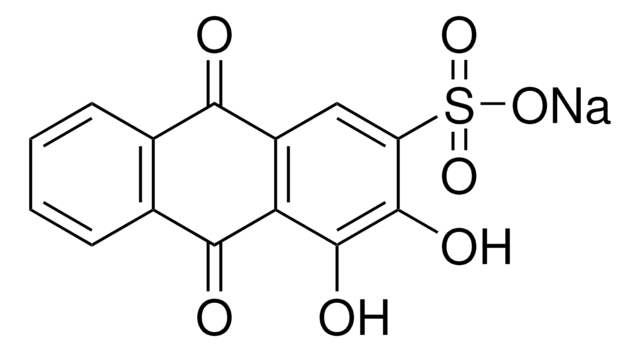92822
Picrylsulfonic acid solution
1 M in H2O
Synonym(s):
2,4,6-Trinitrobenzenesulfonic acid solution, TNBS
About This Item
Recommended Products
form
liquid
Quality Level
concentration
1 M in H2O
density
1.14 g/mL at 20 °C
ε (extinction coefficient)
≤0.85 at 340 nm
shipped in
dry ice
storage temp.
−20°C
SMILES string
OS(=O)(=O)c1c(cc(cc1[N+]([O-])=O)[N+]([O-])=O)[N+]([O-])=O
InChI
1S/C6H3N3O9S/c10-7(11)3-1-4(8(12)13)6(19(16,17)18)5(2-3)9(14)15/h1-2H,(H,16,17,18)
InChI key
NHJVRSWLHSJWIN-UHFFFAOYSA-N
Looking for similar products? Visit Product Comparison Guide
Application
Caution
Other Notes
Signal Word
Danger
Hazard Statements
Hazard Classifications
Acute Tox. 4 Oral - Desen. Expl. 3 - Eye Dam. 1 - Skin Corr. 1B - Skin Sens. 1
Storage Class Code
3 - Flammable liquids
WGK
WGK 3
Flash Point(F)
Not applicable
Flash Point(C)
Not applicable
Personal Protective Equipment
Regulatory Listings
Regulatory Listings are mainly provided for chemical products. Only limited information can be provided here for non-chemical products. No entry means none of the components are listed. It is the user’s obligation to ensure the safe and legal use of the product.
FSL
Group 5: Self-reactive substances
Materials containing Nitro compounds
Hazardous rank I
1st self-reactive materials
JAN Code
92822-1ML:
92822-5ML:
92822-VAR:
92822-50ML:
92822-10ML:
92822-BULK:
Choose from one of the most recent versions:
Already Own This Product?
Find documentation for the products that you have recently purchased in the Document Library.
Our team of scientists has experience in all areas of research including Life Science, Material Science, Chemical Synthesis, Chromatography, Analytical and many others.
Contact Technical Service